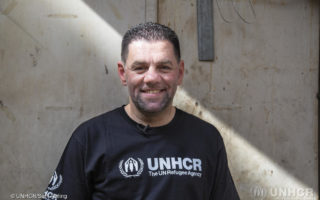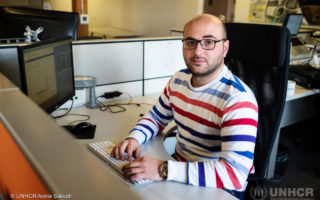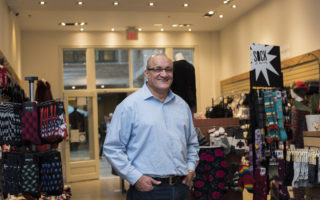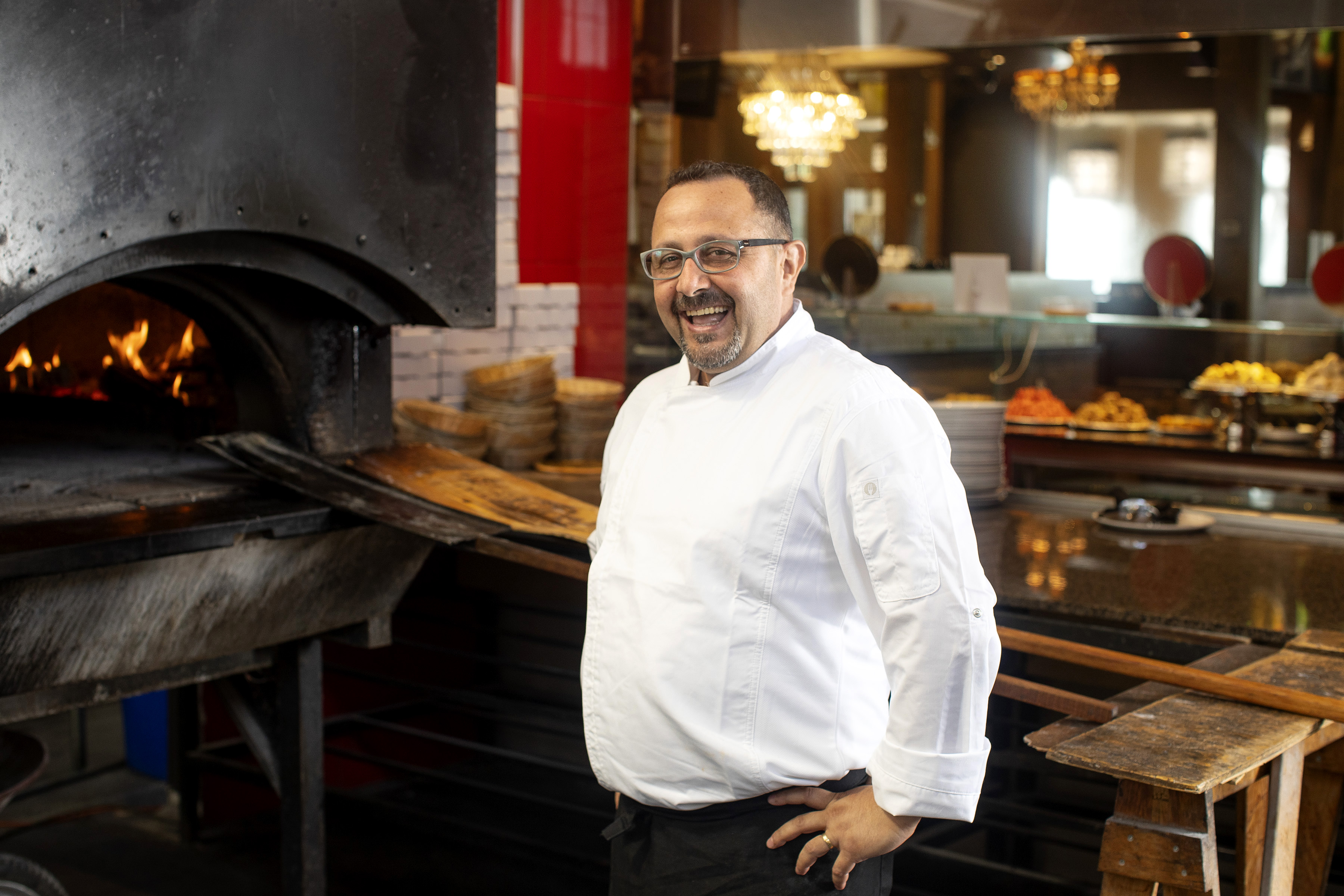
Chef Nabil Maati is seen in the kitchen of Paramount Fine Foods in Mississauga, Ont. ©UNHCR/Chris Young
By Lauren La Rose in Mississauga, Canada
From working in catering as a teen to launching his own restaurant as an adult, Nabil Maati’s passion for the kitchen has never waned—even when forces beyond his control threatened to curtail the Syrian chef’s career.
“I love this kind of job since I was a little boy,” said Maati, who also had a stint as a chef de partie (station chef) at the Four Seasons Hotel in his hometown of Damascus. “(For) more than 20 years I do this kind of job and I really enjoy it. You don’t feel bored at all.
“There is something to do, always there is something new … there’s no limitation of your knowledge in this kind of job—that’s why I like it.”
In 2007, Maati started his own fast-food restaurant, Snack Nobel Takeaway, while also assisting friends with the launch of eateries in Saudi Arabia and the Syrian city of Homs.
“Before 2011, Syria was OK. No problem. You had like a normal life. We were happy,” he said. “After 2011, the war, (it’s been) eight years—it’s changed everything.”
The conflict came directly to his doorstep. An 18-year-old out on a delivery was struck by mortar shells outside of the restaurant.
“I went to the hospital to see what happened and he’d already died,” he recalled. “It was the last journey for him.
“I decided to move straight away. I was concerned about my family and my children,” added Maati, father to children Angela, 11, and Saad, eight, with wife, Raghida.
Maati fled to neighbouring Lebanon and was forced to abandon the business he had worked so hard to establish. Years later, he is savouring a return to the restaurant world and his roots in Middle Eastern cuisine as head chef at a Paramount Fine Foods location in Mississauga, Ont.
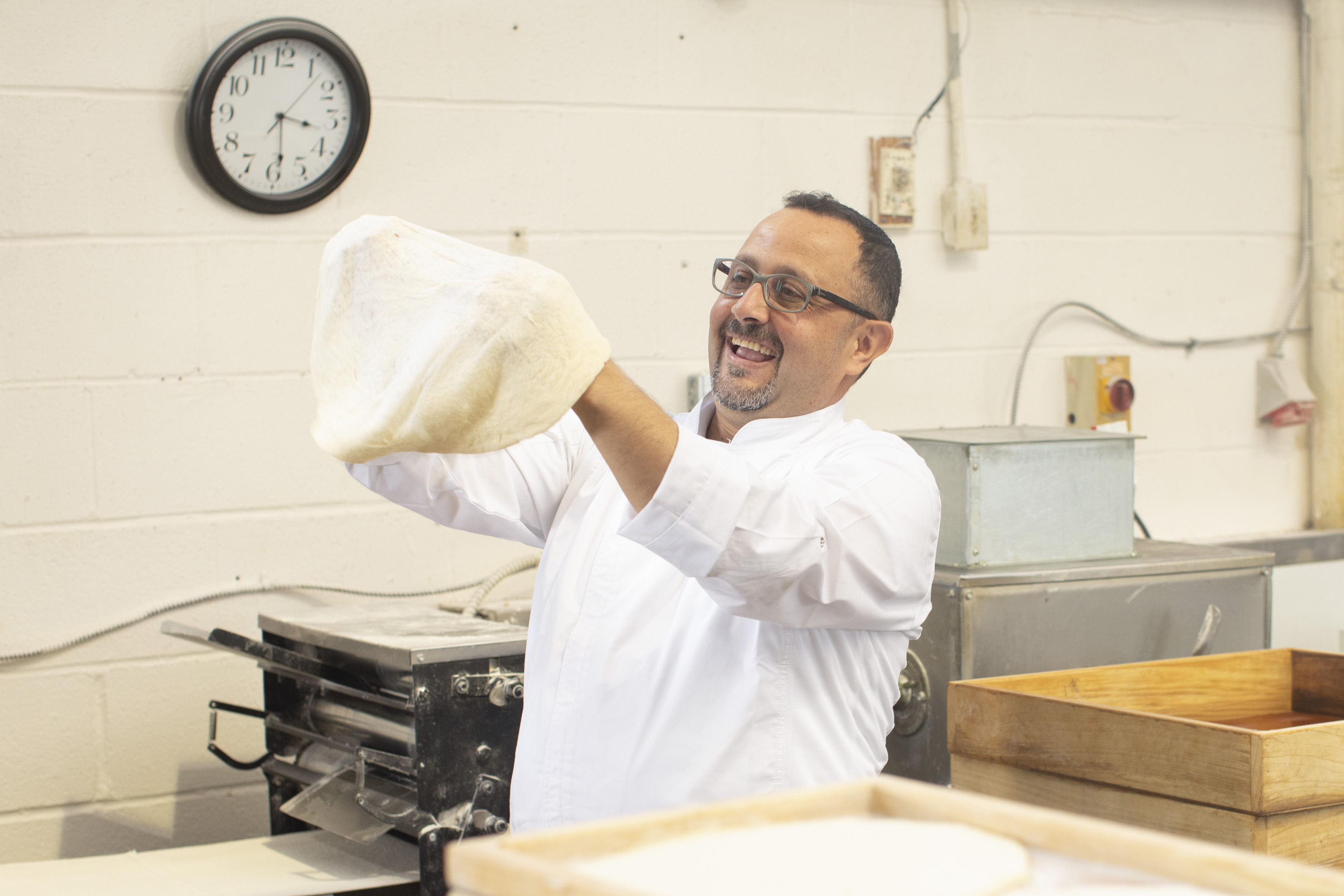
Chef Nabil Maati is seen in the kitchen of Paramount Fine Foods in Mississauga, Ont. ©UNHCR/Chris Young
Maati was able to land the job with the assistance of Talent Beyond Boundaries (TBB), which matches employers with refugees equipped with the skills businesses need. In Jordan and Lebanon, the organization has a registered database of more than 12,000 professionals across various sectors including the trades, engineering, health care and information technology.
TBB is the lead partner of the federally funded Economic Mobility Pathways Project, which tests the possibility for refugees to immigrate to Canada as skilled workers.
“We have a major need for skills, and this is one way to help open up sources that our companies are looking at,” said Dana Wagner, Canada operations director for TBB.
“A company like Paramount is getting a really highly skilled person. And for Nabil and his family … it’s a meaningful job with a great salary; and not only that you’re arriving in Canada as permanent residents. So really, this is an opportunity to rebuild career and life in a safe country.”
Jumpstart, a non-profit supporting refugees already living in Canada to achieve meaningful employment, partners with TBB to engage employers like Paramount with a record of sourcing refugee talent. Building on successful local hiring through Jumpstart, Paramount decided to look globally with TBB.
The Middle Eastern restaurant chain approached TBB to help in the recruitment of a chef, a position that was difficult to fill in the Greater Toronto Area, said Wagner. After checking through their talent database, the TBB team in Lebanon first met with Maati for the first time in March of 2018. They worked with him on his CV and his prepping for the Paramount interview— a test he passed with flying colours.
“He just blew them away,” Wagner said. “He showed himself to be a confident, driven professional, and Paramount from there gave him a job offer.”
“Being able to provide talented individuals like Nabil with the opportunity to move beyond circumstances that are out of their control is something that is very important to us here,” said Mohamad Fakih, president and CEO of Paramount Fine Foods and UNHCR advocate, whose chain has employed some 150 refugees since 2017.
“Hiring refugees is good for business and good for Canada.”
Maati had a chance to have dinner with Fakih shortly after his arrival and was inspired by the CEO’s message of wanting to provide economic opportunities for refugees—himself included.
“It means hope for those people.”



